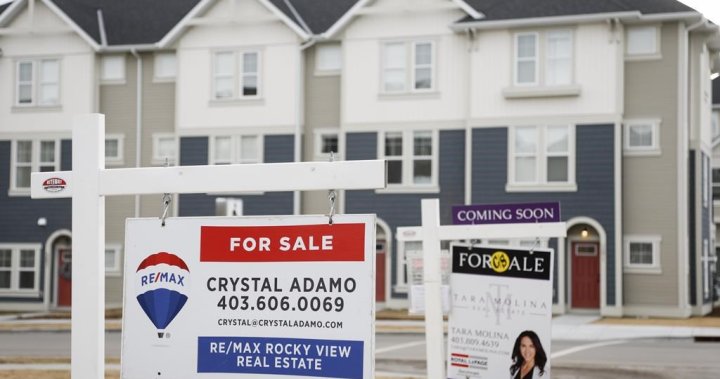A recent study conducted by Rates.ca has revealed that at least half of Calgary families would need an additional $11,000 in income in order to afford an average priced home. This highlights a significant affordability gap in the housing market, with the national average gap being $65,000. Jack Mintz, from the School of Public Policy at the University of Calgary, notes that many parents are assisting their children in purchasing their first home. However, for lower income families, achieving the standard of living they desire can be a major challenge.
The situation has prompted some families to get creative in finding housing solutions. For example, Calgary resident Bill Hornecker converted his backyard woodshop into a living space for his son who is in college. This decision was driven by the high cost of housing and the desire to provide his son with a comfortable living space. While this solution did require some financial investment, it was seen as a more practical alternative than trying to find a rental property for his son.
Victor Tran, also with Rates.ca, emphasizes that the affordability gap in the housing market is not decreasing. Despite decreasing interest rates, the level of affordability remains a major hurdle for many individuals and families looking to enter the housing market. This trend is particularly pronounced in cities like Toronto and Vancouver, where the cost of living and housing prices are significantly higher compared to other regions.
The significant gap between income levels and housing costs is creating a barrier for many Canadians aspiring to own a home. The high cost of living and stagnant wages make it challenging for individuals and families to save up for a down payment and afford mortgage payments. As a result, more and more families are finding it difficult to achieve their dream of homeownership and are exploring alternative solutions to address their housing needs.
The issue of housing affordability is a pressing concern not only in Calgary but also across the country. The study conducted by Rates.ca sheds light on the challenges faced by lower income families in particular, who struggle to meet the high cost of living and housing prices. With the gap between income levels and home prices continuing to widen, it is clear that policy changes and interventions are needed to address this growing issue and ensure that all Canadians have access to affordable housing options.
In conclusion, the housing affordability gap in Canada, particularly in cities like Calgary, Toronto, and Vancouver, continues to present a significant challenge for many families. The need for innovative solutions, policy changes, and interventions in the housing market is essential to ensure that all individuals have access to affordable and stable housing options. As the gap between income levels and housing costs widens, it is crucial for stakeholders to come together to address this issue and work towards creating a more inclusive and sustainable housing market for all Canadians.


